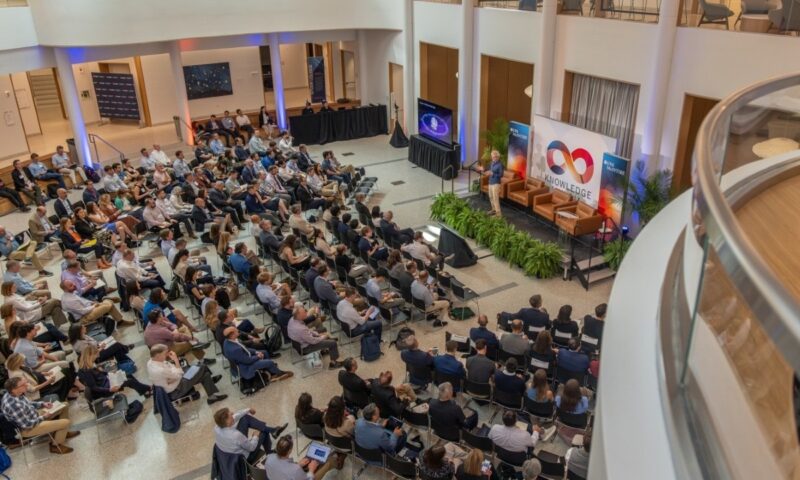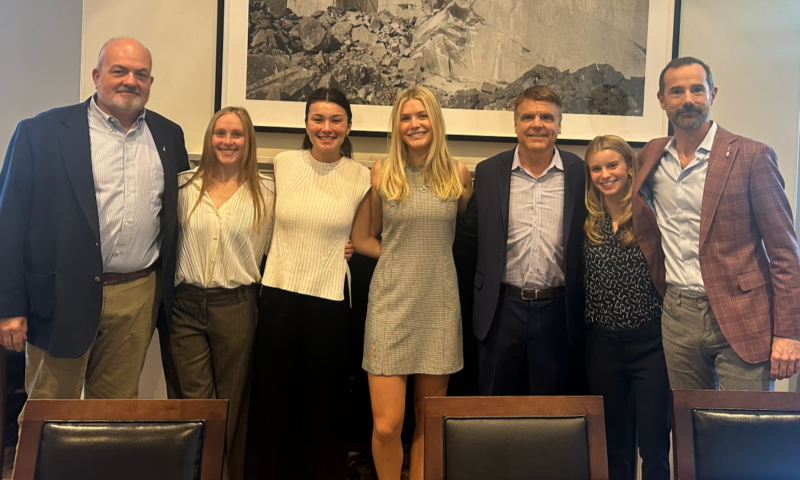The rapid rise of artificial intelligence presents both immense opportunities and significant risks, making it crucial to approach this evolving technology with a balance of ambition and caution. To navigate the complex landscape, the McIntire School established the AI Advisory Task Force, a team dedicated to leading the charge in integrating AI into a wide array of business education areas and practice.
This dynamic group of teacher-scholars and frontline industry advisers is committed to producing impactful research and fostering a culture emphasizing ethical responsibility, innovative thinking, and continuous learning. Formed in spring of 2024, the task force is playing a pivotal role to ensure that McIntire remains a leader in AI integration, equipping students, faculty, and alumni with the essential skills and insights needed to thrive in a business world increasingly shaped by the constantly developing tool.
During the summer of 2024, the task force also reviewed its work since its founding and published a whitepaper detailing their initial goals, early findings, accomplishments, such as identifying main resources and required data, reviewing that data, hosting an upskilling workshop for faculty, and collecting insights from other top business schools newly established plans. The whitepaper also outlines a roadmap for future strategies to successfully integrate AI to bolster various aspects of the Commerce School’s culture of innovation, ethical awareness, and lifelong education.
Here are the seven most important points from the task force’s whitepaper, “Integrating AI into Business Education: Strategies for Innovation and Continuous Learning at McIntire”:
- Reaffirming the task force’s key objectives. The task force continues to focus on fostering AI innovation, ethical awareness, and continuous learning opportunities to ensure that McIntire remains a leader in AI-driven business education. It intends to meet those goals through faculty upskilling, adaptive learning, innovative ongoing adaptation of AI education strategies, maintaining strong industry links, and engaging with alumni working in fields with exposure to novel AI advancements.
- Considering ethical AI use and supporting critical thinking. A significant focus of the whitepaper addresses front-of-mind concerns about the ethical use of AI and its potential impact on students’ critical thinking and analytical skills.
- Prioritizing hypothesis development and testing. The task force developed several hypotheses to test and refine AI integration at McIntire, focusing on faculty upskilling, educational strategies, and collaboration.
- Launching an AI coaching program. Beginning in the fall 2024 semester, with the support of the Provost’s office and involving six faculty members from various disciplines, the School’s AI Guides Program equipped faculty with the skills and knowledge necessary to effectively initiate the integration of AI tools into their teaching and research.
- Hosting an AI conference and hackathon. The task force produced “The Future of Commerce with Generative AI” event, combining the finale of a student concept competition on “GenAI for the Common Good” (first piloted by Professor Chip Ransler in May 2024) with an expert panel discussion on the latest AI breakthroughs and their game-changing impact on business decisions.
- Plans to introduce a second major AI conference. McIntire will host another conference in AI in 2025, sponsored by two leading tech companies. The event will include participation from faculty, students, alumni, and external experts, providing a platform for knowledge exchange and networking within the AI community.
- Increasing industry and alumni collaboration. Through initiatives like the AI conferences, externships, and the Executive-in-Residence program that now features former OpenAI executive and McIntire Fall Forum 2023 keynote speaker Zack Kass, the task force aims to enhance collaboration with industry and alumni alike.



